
Introduction
Türkiye’s geopolitical position as a connection point between Europe and Asia has gained increasing significance in an era of shifting global power dynamics. The Constructive Eurasianism framework developed by the Center for Eurasian Studies (AVİM) offers a strategic vision that will enable Türkiye to navigate safely through the complexities posed by this delicate geopolitical position. This approach positions Türkiye as a “nexus between East and West” and fosters dialogue and collaboration across the vast Eurasian landmass. It should be underlined that the concept of Türkiye as a nexus between East and West is central to Constructive Eurasianism.
As mentioned in our various past analyses, the core principles of Constructive Eurasianism are strategic autonomy, rejection of anti-Westernism, dynamic geopolitical adaptation, and stability. By advocating for a balanced approach that maintains institutional ties with the West while exploring cooperative opportunities in the East, Constructive Eurasianism decisively rejects anti-Westernism while promoting strategic autonomy, stability, and regional cooperation.¹
Through these core principles, Constructive Eurasianism positions Türkiye as pivotal in shaping 21st-century geopolitics. Its balanced approach allows Türkiye to navigate complex international dynamics while promoting cooperation over conflict—a strategy particularly relevant in regions like the Eastern Mediterranean.
The Eastern Mediterranean – Strategic Relevance and Application of Constructive Eurasianism
The Eastern Mediterranean provides a critical testing ground for this framework. As a region of intersecting interests—from energy resources to maritime disputes and security concerns—it presents challenges and opportunities for Türkiye to apply Constructive Eurasianism’s principles. The framework’s emphasis on respecting sovereignty, promoting multilateral collaboration, and addressing destabilization efforts with strategic autonomy is particularly relevant in this contested geography.³ Through its engagement in energy projects, diplomatic initiatives, and security strategies, Türkiye has demonstrated its potential to act as a stabilizing force while safeguarding its national interests
The Eastern Mediterranean is a region of immense geopolitical significance, serving as a nexus of intersecting interests related to energy resources, trade routes, and security concerns. It has become a focal point for regional and global powers, including Türkiye, Russia, China, the European Union (EU), and the United States. Türkiye's strategic position in this contested geography presents challenges and opportunities for implementing the principles of Constructive Eurasianism.[1]
The Eastern Mediterranean hosts substantial natural gas reserves, particularly in the Levant Basin and Egypt’s Zohr field. These resources have attracted international attention, with countries such as the island of Cyprus, Israel, Egypt, and Greece forming trilateral partnerships to exploit them. However, these alliances often exclude Türkiye, exacerbating regional tensions. Sovereignty disputes over maritime boundaries—especially between Türkiye, Greece, and the southern part of the island of Cyprus —further complicate the region’s dynamics.[2]
Türkiye’s policy in the Eastern Mediterranean reflects its broader strategic vision. As a critical energy transit corridor linking Middle East and North African producers to European consumers, Türkiye seeks to secure its national interests while avoiding isolation from regional energy initiatives. The region also plays a vital role in Türkiye’s security architecture, particularly in countering perceived threats from trilateral alliances and safeguarding its maritime rights under the "Blue Homeland" doctrine.[3]
Application of Constructive Eurasianism to Regional Challenges
Constructive Eurasianism provides a framework for addressing these challenges by promoting stability through balanced partnerships that avoid fostering rivalries or antagonisms. Its principles can be applied to enhance cooperation while respecting the sovereignties of the countries. Constructive Eurasianism advocates for Türkiye to act as a stabilizing force by mediating disputes over maritime boundaries and energy exploration rights and, in other words, promoting stability through balanced partnerships. For example, Türkiye could propose multilateral agreements that include all stakeholders—such as Israel, Egypt, and Greece—to ensure equitable resource sharing while reducing tensions.[4]
As a nexus between East and West, Türkiye is uniquely positioned to foster dialogue between competing powers in the region. Leveraging Türkiye's strategic position aligns with Constructive Eurasianism’s emphasis on avoiding zero-sum approaches and promoting cooperative solutions that benefit all parties involved.[5] Enhancing Cooperation While Respecting Sovereignty, Constructive Eurasianism underscores the importance of respecting neighboring sovereignties while pursuing regional initiatives.
Examples of Türkiye’s Engagement
Türkiye has already demonstrated aspects of Constructive Eurasianism through its involvement in regional initiatives. Türkiye's seismic research, drilling activities, and energy projects in contested areas highlight its commitment to securing its maritime rights while exploring potential resource-sharing avenues. Despite tensions and diplomatic efforts with interested regional countries over Exclusive Economic Zones (EEZs), Türkiye has proposed dialogue mechanisms to resolve disputes peacefully. The "Blue Homeland" doctrine, Security Initiatives, reflects Türkiye’s broader strategy to assert its maritime rights while maintaining stability through enhanced naval presence.
Conclusion
Constructive Eurasianism provides Türkiye with a strategic framework to navigate the complexities of modern geopolitics, particularly in the contested region of the Eastern Mediterranean. By emphasizing principles such as strategic autonomy, rejection of anti-Westernism, dynamic geopolitical adaptation, and stability, this approach redefines Türkiye’s role as a pivotal actor in fostering dialogue and collaboration across Eurasia. The concept’s focus on balancing cooperation with sovereignty enables Türkiye to mediate conflicts, promote multilateral partnerships, and safeguard its national interests without compromising regional stability.
In the Eastern Mediterranean, Constructive Eurasianism offers solutions to pressing challenges such as maritime disputes, energy resource competition, and security concerns. Türkiye’s engagement in seismic research, energy exploration, and diplomatic initiatives demonstrates the practical application of these principles. The "Blue Homeland" doctrine further reflects Türkiye’s commitment to asserting its maritime rights while maintaining a balanced approach to regional cooperation.
However, successfully implementing Constructive Eurasianism requires overcoming significant obstacles, including exclusion from regional alliances like the East Mediterranean Gas Forum (EMGF) and perceptions of aggression by neighboring states. By adhering to its core principles and leveraging its unique geographic position as a nexus between East and West, Türkiye has the potential to lead by example in balancing cooperation with sovereignty.
Ultimately, Constructive Eurasianism positions Türkiye as an adaptable and stabilizing force in Eurasia. Its principles enhance Türkiye’s geopolitical relevance and contribute to long-term peace, economic growth, and social cohesion across the region. As global power dynamics evolve, Constructive Eurasianism provides a valuable roadmap for addressing regional challenges while fostering inclusive collaboration and minimizing the adverse effects of ambitious zero-sum game practices pursued by certain countries.
*Photo: Türkiye Gençlik Birliği
[1] Teoman Ertuğrul Tulun, “Constructive Eurasianism: Revisiting Definitions,” Center for Eurasian Studies (AVİM), February 26, 2025.
[2] Esra Dilek, “Sovereignty Disputes and Resource Discoveries in the Eastern Mediterranean: A Conflict Analysis Perspective,” Dergipark Academic Journal (2020): 3–5.
[3] Cengiz Çandar, “The Eastern Mediterranean: Cyprus and the Geopolitics of Turkish Irredentism,” RUSI Commentary (2025): 2–4
[4] Mehmet Oğuzhan Tulun & Teoman Ertuğrul Tulun, “The Necessity of Constructive Eurasianism,” AVİM Commentary No. 2017/51 (June 12, 2017).
[5] Yılmaz Sever & Bilgin Pamir, “Turkey’s Geostrategic Vision and Energy Concerns in the Eastern Mediterranean,” Yaşar University Publication (2016): 121–123.
© 2009-2025 Center for Eurasian Studies (AVİM) All Rights Reserved
No comments yet.
-
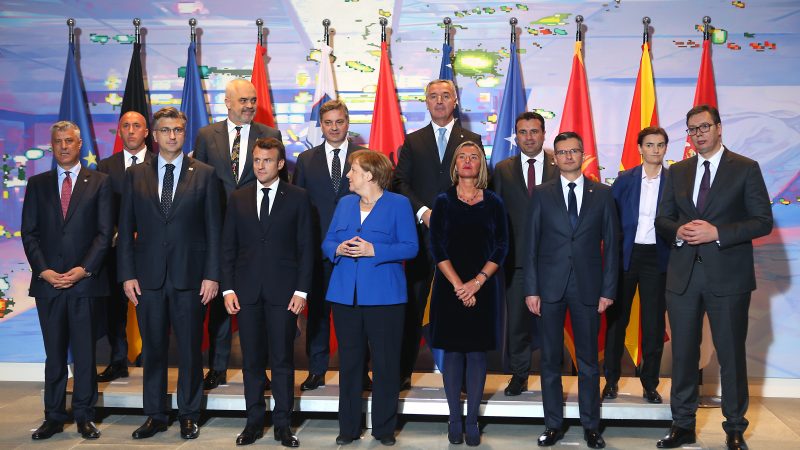 LEGACY OF "KRISENMANAGERIN": MERKEL AND THE BALKANS
LEGACY OF "KRISENMANAGERIN": MERKEL AND THE BALKANS
Teoman Ertuğrul TULUN 11.10.2021 -
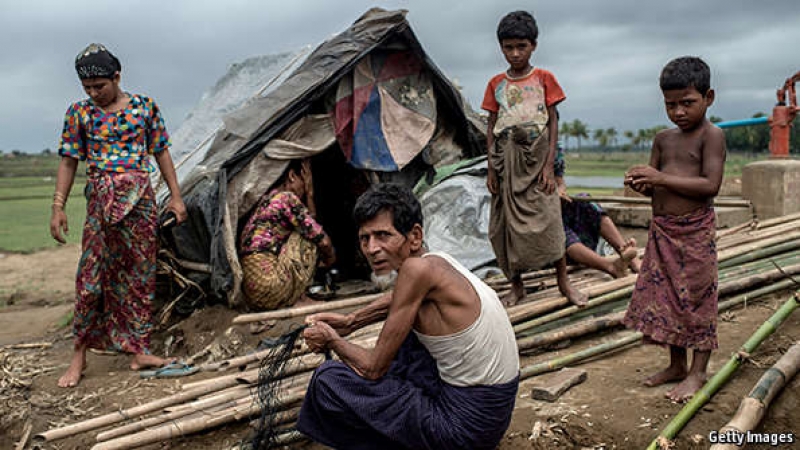 ARAKAN AND THE PLIGHT OF THE ROHINGYA: CONFLICT UNDER AN UMBRELLA OF DEFINITIONS
ARAKAN AND THE PLIGHT OF THE ROHINGYA: CONFLICT UNDER AN UMBRELLA OF DEFINITIONS
Teoman Ertuğrul TULUN 09.10.2017 -
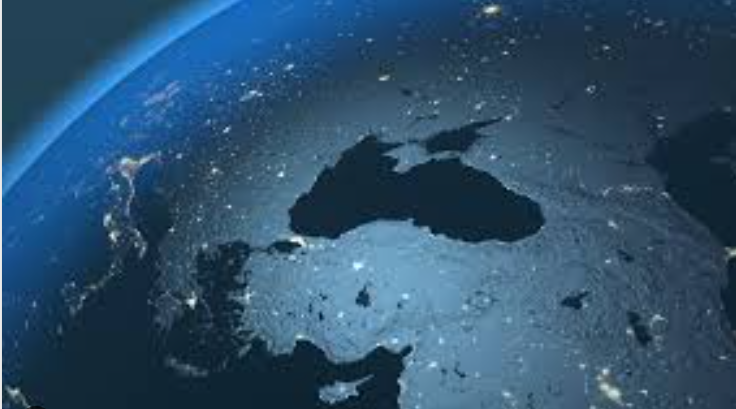 SOVEREIGNTY AND SYNERGY: INTEGRATING MONTREUX CONVENTION COMPLIANCE INTO EU BLACK SEA SECURITY ARCHITECTURE
SOVEREIGNTY AND SYNERGY: INTEGRATING MONTREUX CONVENTION COMPLIANCE INTO EU BLACK SEA SECURITY ARCHITECTURE
Teoman Ertuğrul TULUN 01.07.2025 -
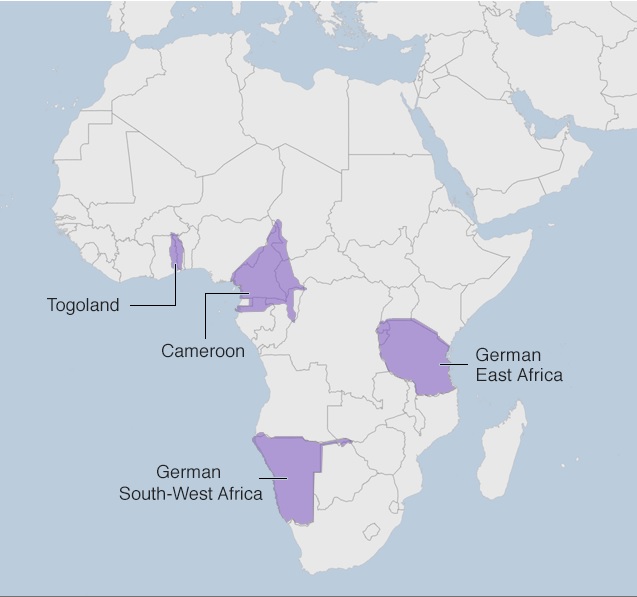 GERMAN COLONIAL LEGACY: TANZANIA AND THE HUMBOLDT FORUM
GERMAN COLONIAL LEGACY: TANZANIA AND THE HUMBOLDT FORUM
Teoman Ertuğrul TULUN 01.02.2021 -
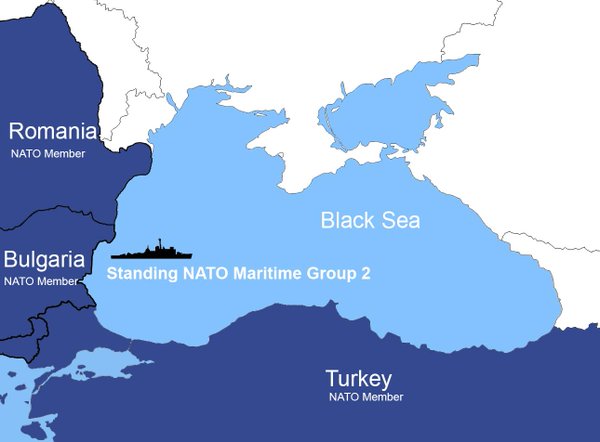 BLACK SEA, A POTENTIAL FRICTION VENUE BETWEEN RUSSIA AND THE WEST: TURKEY HOLDS THE KEY TO THE REGION
BLACK SEA, A POTENTIAL FRICTION VENUE BETWEEN RUSSIA AND THE WEST: TURKEY HOLDS THE KEY TO THE REGION
Teoman Ertuğrul TULUN 13.03.2017
-
 BREXIT: NEW PARADIGM SHIFT FOR GLOBALIZATION AND SIGNAL FOR NEW WORLD ORDER
BREXIT: NEW PARADIGM SHIFT FOR GLOBALIZATION AND SIGNAL FOR NEW WORLD ORDER
Teoman Ertuğrul TULUN 27.01.2017 -
 TURKEY AND THE EUROPEAN UNION
TURKEY AND THE EUROPEAN UNION
Alev KILIÇ 19.11.2015 -
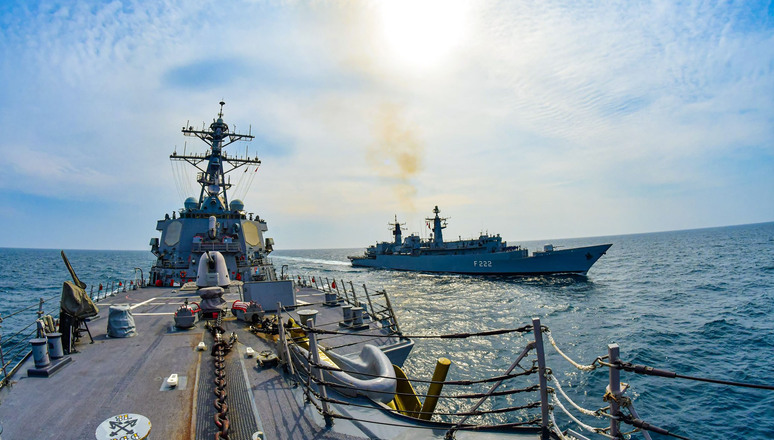 THE GRAIN INITIATIVE AND THE BLACK SEA SECURITY - II
THE GRAIN INITIATIVE AND THE BLACK SEA SECURITY - II
Turgut Kerem TUNCEL 03.08.2023 -
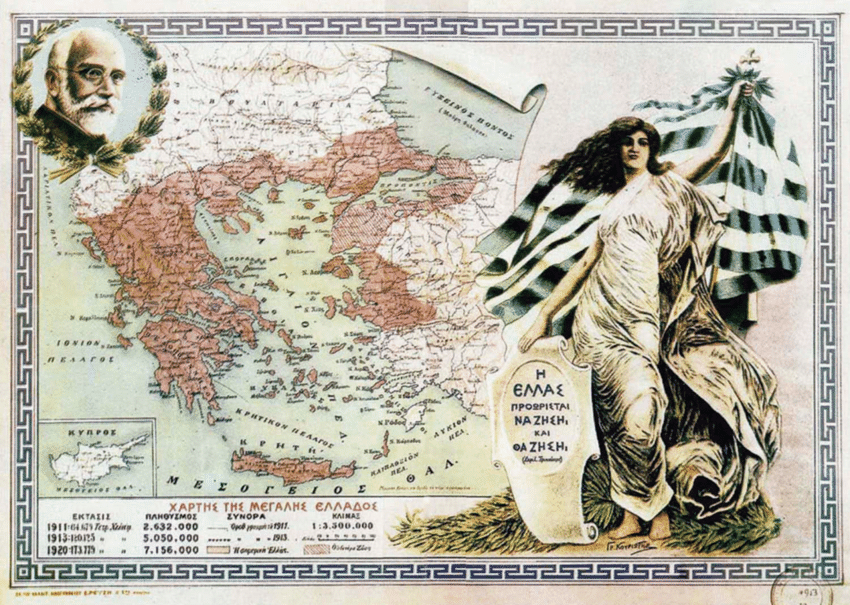 CONSEQUENCES OF MATERIAL BREACH OF THE LAUSANNE PEACE TREATY
CONSEQUENCES OF MATERIAL BREACH OF THE LAUSANNE PEACE TREATY
Teoman Ertuğrul TULUN 07.10.2020 -
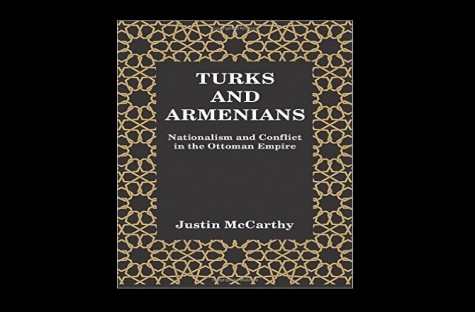 CHAPTER BY CHAPTER SYNOPSIS AND REVIEW OF TURKS AND ARMENIANS: NATIONALISM AND CONFLICT IN THE OTTOMAN EMPIRE BY JUSTIN MCCARTHY - 7
CHAPTER BY CHAPTER SYNOPSIS AND REVIEW OF TURKS AND ARMENIANS: NATIONALISM AND CONFLICT IN THE OTTOMAN EMPIRE BY JUSTIN MCCARTHY - 7
Hazel ÇAĞAN ELBİR 22.10.2015
-
25.01.2016
THE ARMENIAN QUESTION - BASIC KNOWLEDGE AND DOCUMENTATION -
12.06.2024
THE TRUTH WILL OUT -
27.03.2023
RADİKAL ERMENİ UNSURLARCA GERÇEKLEŞTİRİLEN MEZALİMLER VE VANDALİZM -
17.03.2023
PATRIOTISM PERVERTED -
23.02.2023
MEN ARE LIKE THAT -
03.02.2023
BAKÜ-TİFLİS-CEYHAN BORU HATTININ YAŞANAN TARİHİ -
16.12.2022
INTERNATIONAL SCHOLARS ON THE EVENTS OF 1915 -
07.12.2022
FAKE PHOTOS AND THE ARMENIAN PROPAGANDA -
07.12.2022
ERMENİ PROPAGANDASI VE SAHTE RESİMLER -
01.01.2022
A Letter From Japan - Strategically Mum: The Silence of the Armenians -
01.01.2022
Japonya'dan Bir Mektup - Stratejik Suskunluk: Ermenilerin Sessizliği -
03.06.2020
Anastas Mikoyan: Confessions of an Armenian Bolshevik -
08.04.2020
Sovyet Sonrası Ukrayna’da Devlet, Toplum ve Siyaset - Değişen Dinamikler, Dönüşen Kimlikler -
12.06.2018
Ermeni Sorunuyla İlgili İngiliz Belgeleri (1912-1923) - British Documents on Armenian Question (1912-1923) -
02.12.2016
Turkish-Russian Academics: A Historical Study on the Caucasus -
01.07.2016
Gürcistan'daki Müslüman Topluluklar: Azınlık Hakları, Kimlik, Siyaset -
10.03.2016
Armenian Diaspora: Diaspora, State and the Imagination of the Republic of Armenia -
24.01.2016
ERMENİ SORUNU - TEMEL BİLGİ VE BELGELER (2. BASKI)
-
AVİM Conference Hall 24.01.2023
CONFERENCE TITLED “HUNGARY’S PERSPECTIVES ON THE TURKIC WORLD"









